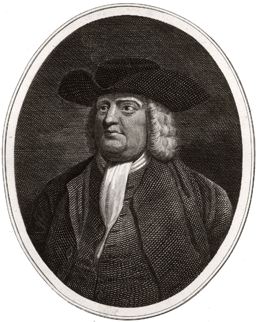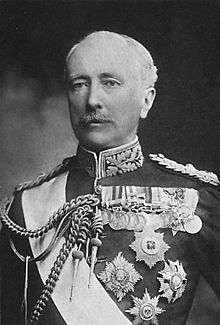The story lives on
22/02/14 05:24
OK, this is a blog. You can’t interrupt me if you’ve heard this one before. The best you can do is skip down a few paragraphs. Or, I guess you could skip the blog entirely, in which case you’ll never know how the blog ends.
 If it weren’t for the rules of inheritance we might not ever have heard of William Penn, and if we had, we might think of him only as a philosopher and Quaker theologian. William Penn became the owner of a large piece of American land because of debt that King Charles II owed to Penn’s father. So, in 1681, he became the title holder to all of the land of what is today Pennsylvania and Delaware. He immediately sailed for the North American continent and arrived in 1682. He assembled the colonists who were already settled, mostly near the coast and had them pledge allegiance to him as their new proprietor. He pledged to put his Quaker beliefs to work in forming a fair and reasonable government and not long afterwards headed up the river to Philadelphia. The rest is history.
If it weren’t for the rules of inheritance we might not ever have heard of William Penn, and if we had, we might think of him only as a philosopher and Quaker theologian. William Penn became the owner of a large piece of American land because of debt that King Charles II owed to Penn’s father. So, in 1681, he became the title holder to all of the land of what is today Pennsylvania and Delaware. He immediately sailed for the North American continent and arrived in 1682. He assembled the colonists who were already settled, mostly near the coast and had them pledge allegiance to him as their new proprietor. He pledged to put his Quaker beliefs to work in forming a fair and reasonable government and not long afterwards headed up the river to Philadelphia. The rest is history.
But wait! There’s more! Penn’s Quakerism wasn’t selling well with the Dutch, Swedish and English settlers in Delaware. They wanted to opt out of the new Pennsylvania assembly.Eventually three counties were allowed to form their own semi-autonomous colony of Lower Delaware. It worked to keep the peace, but it left Penn’s new colony a bit short of settlers. Penn began to send messages back to England encouraging the people he new to come as settlers. His contacts in England were mostly members of the Religious Society of Friends, known as Quakers.
But wait! There’s more! Trying to form a new city in a new colony on a new continent basically turned the peace-loving Quaker philosopher into a land developer and real estate salesman. It was quite a turn around for a man who at the age of 22 had been homeless and cut out of his father’s will because of his conversion to Quakerism. Had the old admiral lived, the debt would have been paid to him and not his son and we would never have heard of William Penn.
But wait! There’s more! Penn wasn’t the only member of his family to convert. It seems that two of his aunts also converted. Similarly rejected by the Penn family back in England, they followed their nephew to his new home in what was to become Philadelphia. The sisters opened a bakery and soon had a prominent place in the new colony. Once established, however, a new controversy appeared. It seemed that some of the other settlers in Philadelphia felt that the pair had received undue privilege because of their relationship to the colony’s proprietor. They began to complain about the prices at the sisters’ bakery. Thus one of the early protests carried out by the settlers was all caused by the pie rates of Penn’s aunts!
I am the very model of a modern Major-General,
I've information vegetable, animal, and mineral,
I know the kings of England, and I quote the fights historical
From Marathon to Waterloo, in order categorical;a
I'm very well acquainted, too, with matters mathematical,
I understand equations, both the simple and quadratical,
About binomial theorem I'm teeming with a lot o' news, (bothered for a rhyme)
With many cheerful facts about the square of the hypotenuse.
I'm very good at integral and differential calculus;
I know the scientific names of beings animalculous:
In short, in matters vegetable, animal, and mineral,
I am the very model of a modern Major-General.
It may well be the most famous of all of Gilbert and Sullivan’s songs. At any rate the patter song is certainly the most familiar from the wildly popular 1879 comic opera, The Pirates of Penzance.
 Modern audiences probably don’t get all of the political satire and historical nuances. They laugh at Mabel’s calculation of the new date for Frederic’s fulfillment of his apprenticeship as 1940, but might not be laughing with quite the same perspective as would and 1879 audience.
Modern audiences probably don’t get all of the political satire and historical nuances. They laugh at Mabel’s calculation of the new date for Frederic’s fulfillment of his apprenticeship as 1940, but might not be laughing with quite the same perspective as would and 1879 audience.
At any rate, today’s audiences probably don’t get the obvious spoof of Sir Garnet Wolseley, a famous and highly-decorated Field Marshall of the British Army who served in Burma, the Crimean War, the Indian Mutiny, China, throughout Africa and even spent some time in Canada. Wolseley had received his commission as an inheritance in recognition of his father’s service, not unlike Penn receiving land as an inheritance. (Yes that part of the story is true.) But the character of the Major General could easily, and perhaps more accurately have been a spoof of equally-famous General Henry Turner, uncle of the wife of Gilbert, who, unlike the progressive Wolseley, was definitely old school.
In fact, when I know what is meant by "mamelon" and "ravelin",
When I can tell at sight a Mauser rifle from a Javelin,d
When such affairs as sorties and surprises I'm more wary at,
And when I know precisely what is meant by "commissariat",
When I have learnt what progress has been made in modern gunnery,
When I know more of tactics than a novice in a nunnery –
In short, when I've a smattering of elemental strategy – (bothered for a rhyme)
You'll say a better Major-General has never sat a gee.e
Whatever stories you tell, the old comic opera holds up well 135 years after it’s first performance. Which, if you do the math, makes the play the same age as our congregation. Jokes about 1940 seem to have a different ring in our church these days than they might have had back in the time of our founders.
At any rate taking in the production of the show by the Black Hills Community Theatre last night was a delightful way to cap off another busy week. The unbridled silliness of the patter lyrics, the comic gestures and facial reactions and the delight of familiar local performers well-cast in a fun production combined to make for a delightful evening.
It was even better than some of my jokes!

But wait! There’s more! Penn’s Quakerism wasn’t selling well with the Dutch, Swedish and English settlers in Delaware. They wanted to opt out of the new Pennsylvania assembly.Eventually three counties were allowed to form their own semi-autonomous colony of Lower Delaware. It worked to keep the peace, but it left Penn’s new colony a bit short of settlers. Penn began to send messages back to England encouraging the people he new to come as settlers. His contacts in England were mostly members of the Religious Society of Friends, known as Quakers.
But wait! There’s more! Trying to form a new city in a new colony on a new continent basically turned the peace-loving Quaker philosopher into a land developer and real estate salesman. It was quite a turn around for a man who at the age of 22 had been homeless and cut out of his father’s will because of his conversion to Quakerism. Had the old admiral lived, the debt would have been paid to him and not his son and we would never have heard of William Penn.
But wait! There’s more! Penn wasn’t the only member of his family to convert. It seems that two of his aunts also converted. Similarly rejected by the Penn family back in England, they followed their nephew to his new home in what was to become Philadelphia. The sisters opened a bakery and soon had a prominent place in the new colony. Once established, however, a new controversy appeared. It seemed that some of the other settlers in Philadelphia felt that the pair had received undue privilege because of their relationship to the colony’s proprietor. They began to complain about the prices at the sisters’ bakery. Thus one of the early protests carried out by the settlers was all caused by the pie rates of Penn’s aunts!
I am the very model of a modern Major-General,
I've information vegetable, animal, and mineral,
I know the kings of England, and I quote the fights historical
From Marathon to Waterloo, in order categorical;a
I'm very well acquainted, too, with matters mathematical,
I understand equations, both the simple and quadratical,
About binomial theorem I'm teeming with a lot o' news, (bothered for a rhyme)
With many cheerful facts about the square of the hypotenuse.
I'm very good at integral and differential calculus;
I know the scientific names of beings animalculous:
In short, in matters vegetable, animal, and mineral,
I am the very model of a modern Major-General.
It may well be the most famous of all of Gilbert and Sullivan’s songs. At any rate the patter song is certainly the most familiar from the wildly popular 1879 comic opera, The Pirates of Penzance.

At any rate, today’s audiences probably don’t get the obvious spoof of Sir Garnet Wolseley, a famous and highly-decorated Field Marshall of the British Army who served in Burma, the Crimean War, the Indian Mutiny, China, throughout Africa and even spent some time in Canada. Wolseley had received his commission as an inheritance in recognition of his father’s service, not unlike Penn receiving land as an inheritance. (Yes that part of the story is true.) But the character of the Major General could easily, and perhaps more accurately have been a spoof of equally-famous General Henry Turner, uncle of the wife of Gilbert, who, unlike the progressive Wolseley, was definitely old school.
In fact, when I know what is meant by "mamelon" and "ravelin",
When I can tell at sight a Mauser rifle from a Javelin,d
When such affairs as sorties and surprises I'm more wary at,
And when I know precisely what is meant by "commissariat",
When I have learnt what progress has been made in modern gunnery,
When I know more of tactics than a novice in a nunnery –
In short, when I've a smattering of elemental strategy – (bothered for a rhyme)
You'll say a better Major-General has never sat a gee.e
Whatever stories you tell, the old comic opera holds up well 135 years after it’s first performance. Which, if you do the math, makes the play the same age as our congregation. Jokes about 1940 seem to have a different ring in our church these days than they might have had back in the time of our founders.
At any rate taking in the production of the show by the Black Hills Community Theatre last night was a delightful way to cap off another busy week. The unbridled silliness of the patter lyrics, the comic gestures and facial reactions and the delight of familiar local performers well-cast in a fun production combined to make for a delightful evening.
It was even better than some of my jokes!